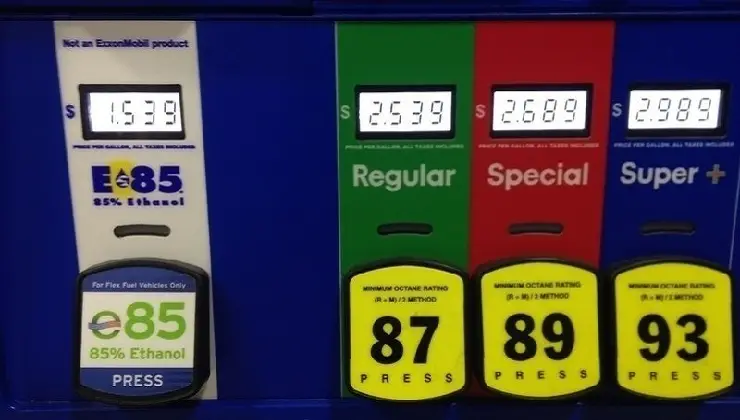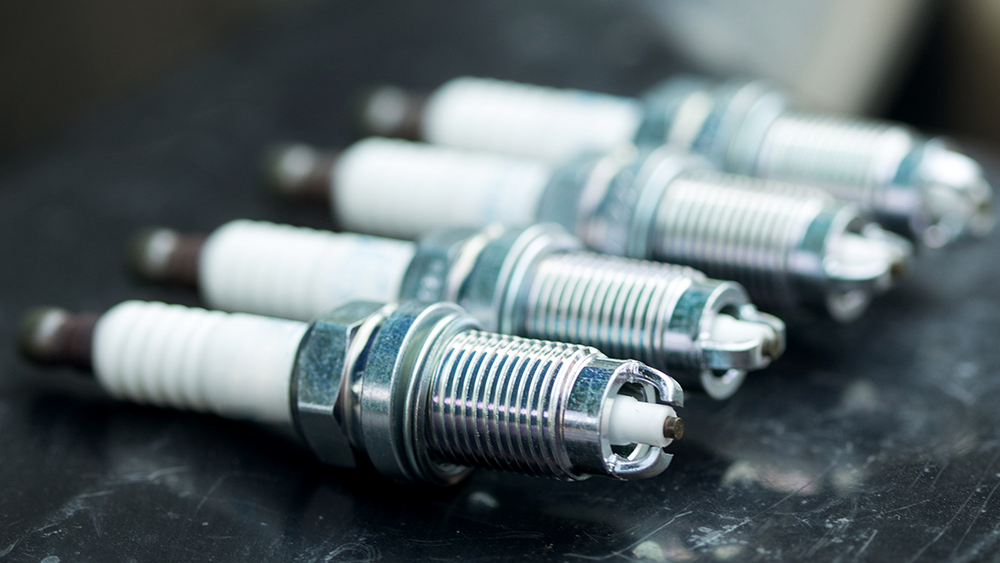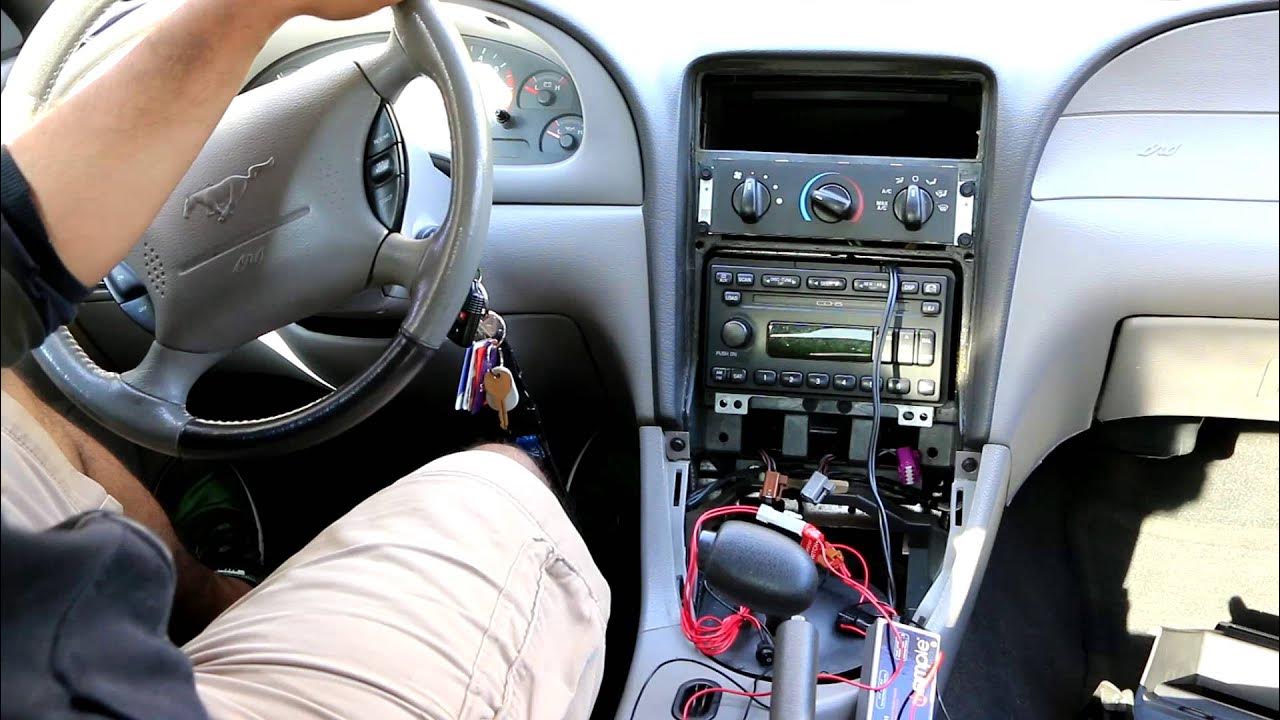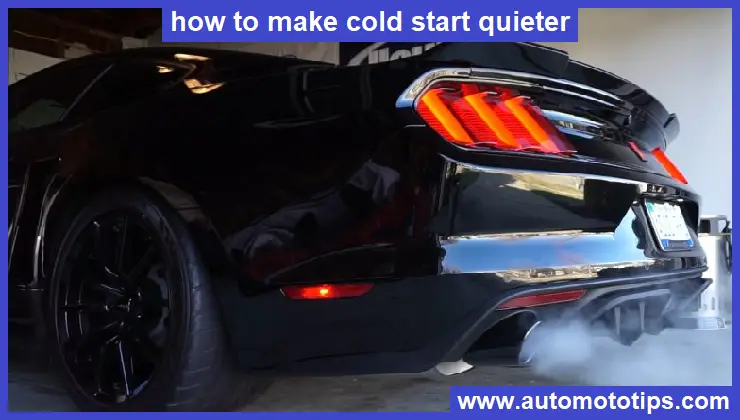If you own a vehicle that can run on E85 fuel, you may have wondered whether it is possible to use this ethanol-based fuel without making any modifications to your vehicle’s engine. E85 fuel has gained popularity in recent years due to its potential environmental benefits and potential for increased performance.
In this article, we will explore the relationship between E85 fuel and vehicle tuning, discussing the potential benefits and risks of using the e85 without a tune, and how to tune it, tips for running e85 without a tune.
Contents
- 1 What is E85 Fuel?
- 2 What is a Tune?
- 3 The Relationship Between E85 Fuel and Tuning
- 4 Can You Run E85 Without a Tune?
- 5 Risks of Running E85 Without a Tune
- 6 Benefits of Tuning for E85
- 7 Factors to Consider
- 8 How to Tune for E85?
- 9 Tips for Running E85 Without a Tune
- 10 Relevant FAQs About Running E85 Without a Tune
- 11 Conclusion
What is E85 Fuel?
E85 fuel is a type of fuel that contains 85% ethanol and 15% gasoline. Ethanol is a renewable biofuel made from plant materials such as corn, sugarcane, or switchgrass. E85 fuel is considered a more environmentally friendly alternative to gasoline because it produces fewer greenhouse gas emissions and is a renewable resource. In addition to its potential environmental benefits, E85 fuel has also gained popularity among car enthusiasts for its potential to increase engine performance due to its higher octane rating.
What is a Tune?
Before we delve into the relationship between E85 fuel and tuning, let’s first understand what a tune is. In the context of a vehicle’s engine, a tune refers to the process of reprogramming the engine control unit (ECU) or engine control module (ECM) to optimize its performance. A tune can modify various parameters of the engine, such as fuel injection timing, ignition timing, air-fuel ratio, and boost pressure, among others, to achieve better performance, improved fuel efficiency, or other desired outcomes.
The Relationship Between E85 Fuel and Tuning
E85 fuel has different combustion characteristics compared to gasoline due to its higher ethanol content. Ethanol has a higher octane rating than gasoline, which means it is less prone to knocking, allowing for higher compression ratios and potentially increased power output. However, the higher oxygen content in ethanol also requires adjustments in the engine’s fueling and ignition timing to achieve optimal performance. This is where tuning comes into play.
Tuning for E85 fuel involves reprogramming the ECU or ECM to adjust the engine’s parameters to accommodate the higher oxygen content of ethanol. This includes increasing the fuel flow rate to compensate for ethanol’s lower energy content compared to gasoline, as well as adjusting the ignition timing to optimize combustion. Additionally, tuning may also involve modifying other parameters, such as the air-fuel ratio and boost pressure, to achieve the best performance and efficiency with E85 fuel.
Can You Run E85 Without a Tune?
Technically, it is possible to run E85 fuel in a vehicle without a tune, especially if the vehicle’s engine is designed to be flex-fuel capable, which means it can automatically adjust to different fuel compositions. However, it is generally not recommended to run E85 without a tune, as it may result in suboptimal performance and potential engine damage.
Running E85 without a tune can result in several issues. One of the primary concerns is that the engine may not receive enough fuel, as the higher oxygen content of ethanol requires a higher fuel flow rate to achieve the same level of power output as gasoline. This can result in a lean air-fuel mixture, which may cause the engine to run hot, potentially leading to overheating and engine damage. Additionally, the higher oxygen content of ethanol may also cause the combustion process to be incomplete, leading to increased emissions and reduced fuel efficiency. Furthermore, without proper tuning, the ignition timing may not be optimized for E85 fuel, which can result in reduced performance and potential knocking or pinging in the engine.
Risks of Running E85 Without a Tune
Running E85 without a proper tune can pose several risks to your vehicle’s engine and overall performance. Some of the potential risks include:
- Engine damage: The higher oxygen content of ethanol in E85 fuel can cause the engine to run lean, resulting in increased combustion temperatures and potential overheating. Over time, this can lead to engine damage, such as piston damage, valve damage, and cylinder wall damage.
- Reduced performance: E85 fuel has different combustion characteristics compared to gasoline, and without proper tuning, the engine may not be able to take full advantage of the higher octane rating and increased oxygen content of ethanol. This can result in reduced performance, including lower power output, reduced torque, and decreased acceleration.
- Increased emissions: Incomplete combustion due to improper fueling and ignition timing can result in increased emissions, including higher levels of hydrocarbons (HC), carbon monoxide (CO), and nitrogen oxides (NOx). This can contribute to air pollution and environmental concerns.
- Poor fuel efficiency: Running E85 without a tune can result in reduced fuel efficiency, as the engine may not be able to fully utilize the energy content of ethanol. This can result in more frequent refueling and increased fuel costs over time.
Benefits of Tuning for E85
On the other hand, proper tuning for E85 fuel can offer several benefits, including:
- Increased performance: With the right tune, E85 fuel can potentially provide higher power output, increased torque, and improved acceleration compared to gasoline. This is due to the higher octane rating and oxygen content of ethanol, which can allow for higher compression ratios and optimized combustion.
- Improved fuel efficiency: Tuning for E85 can optimize the fueling and ignition timing, resulting in improved fuel efficiency. This can lead to fewer trips to the gas station and lower fuel costs in the long run.
- Reduced emissions: Proper tuning for E85 fuel can result in more complete combustion, leading to reduced emissions of HC, CO, and NOx. This can contribute to a cleaner environment and reduced air pollution.
- Flexibility: With a proper tune, a flex-fuel-capable vehicle can run on a variety of fuel compositions, including gasoline, E85, or any blend of the two. This provides flexibility in fuel choices, depending on availability and personal preferences.
Factors to Consider
Before making the decision to run E85 in a vehicle, there are several factors that need to be considered:
- Engine type and condition: The type and condition of the engine play a crucial role in determining whether E85 can be used without a tune. Modern vehicles with advanced ECUs may be more forgiving when it comes to running E85 without a tune, as the ECUs can make adjustments based on the sensor data. However, older or modified engines may require precise tuning to ensure optimal performance and prevent potential damage.
- Fuel system components: E85 is more corrosive compared to gasoline and may require upgraded fuel system components that are designed to handle ethanol. This includes fuel lines, injectors, and fuel pumps. It is important to ensure that the fuel system is compatible with E85 before attempting to run it without a tune.
- Performance goals: If the goal is to maximize the performance benefits of E85, such as increased horsepower and torque, then proper tuning is essential. Without tuning, the full potential of E85 may not be realized, and the performance gains may be minimal.
- Budget and resources: Engine tuning can be a complex and costly process, requiring specialized equipment and expertise. Consideration should be given to the budget and resources available for proper tuning before attempting to run E85 without a tune. It may be more cost-effective and safer to invest in professional tuning rather than risking potential engine damage.
How to Tune for E85?
Tuning for E85 fuel is a complex process that requires specialized knowledge and equipment. It is recommended to seek the assistance of a qualified mechanic or tuner who is experienced in tuning for E85. The tuning process may involve the following steps:
Upgrading fuel system
E85 fuel requires a higher fuel flow rate compared to gasoline, so upgrading the fuel system, including the fuel pump, injectors, and lines, may be necessary to ensure proper fuel delivery.
Reprogramming ECU or ECM
The engine control unit (ECU) or engine control module (ECM) needs to be reprogrammed to adjust the fueling and ignition timing for E85 fuel. This may involve modifying parameters such as fuel maps, ignition timing maps, and air-fuel ratio maps to optimize performance with E85.
Dyno tuning
Dyno tuning involves running the vehicle on a dynamometer, which is a device that measures engine performance in a controlled environment. This allows for fine-tuning of the engine parameters to achieve optimal performance with E85 fuel, including adjusting the fueling, ignition timing, and other parameters to ensure efficient combustion and maximum power output.
Monitoring and adjustments
After the initial tuning, it’s important to monitor the engine’s performance and make necessary adjustments as needed. This may involve making changes to the tune based on data collected from sensors, such as oxygen sensors, exhaust gas temperature sensors, and other engine performance metrics.
Regular maintenance
Proper maintenance is crucial when running E85 fuel. This includes regular inspection and cleaning of fuel system components, as ethanol can be corrosive and may cause deposits to form. It’s also important to keep up with regular oil changes, spark plug replacements, and other maintenance tasks to ensure the engine runs smoothly and efficiently.
Tips for Running E85 Without a Tune
While it is generally recommended to have a proper tune when using E85, there are some tips that can help mitigate risks if you decide to run E85 without a tune:
- Monitoring fuel composition: E85 can vary in ethanol content, and it’s important to monitor the actual ethanol content of the fuel being used. Some vehicles have a flex-fuel sensor that can detect the ethanol content and adjust engine parameters accordingly. However, these sensors are not always accurate, so it’s best to use a reliable ethanol content testing kit to ensure that the fuel being used is within the appropriate range.
- Regular maintenance: Running E85 without a tune can put additional stress on engine components, so it’s important to stay on top of regular maintenance tasks, such as changing spark plugs, fuel filters, and oil, to ensure that the engine is operating optimally.
- Use high-quality E85 fuel: It is crucial to use high-quality E85 fuel from reputable sources to minimize the risk of fuel impurities and ensure consistent fuel quality. Poor-quality E85 fuel can result in engine damage and performance issues.
- Using a flex-fuel sensor: If your vehicle does not have a flex-fuel sensor, you may consider installing one. A flex-fuel sensor can accurately detect the ethanol content of the fuel being used and adjust engine parameters accordingly, which can help mitigate some of the risks associated with running E85 without a tune.
- Consider professional tuning: If you plan to use E85 fuel regularly, it may be worth considering professional tuning for your engine. A qualified tuner can optimize your engine’s performance for E85 fuel, reducing the risks of potential issues.
It’s important to note that while these tips may help reduce risks, they are not a substitute for proper tuning. Tuning is still the most effective way to ensure optimal performance and reliability when using E85.
Relevant FAQs About Running E85 Without a Tune
Q: Is it safe to mix E85 with gasoline in my vehicle without tuning?
A: It is generally not recommended to mix E85 with gasoline in your vehicle without proper tuning. The different properties of E85 and gasoline can result in inconsistent air-to-fuel ratios and ignition timing, which can lead to poor performance, reduced power, and potential engine damage.
Q: Will running E85 without a tune improve my fuel economy?
A: Running E85 without a tune in a vehicle not specifically designed for it may result in poorer fuel economy compared to using gasoline. This is because the engine may not be able to fully optimize the fuel mixture and ignition timing for E85, potentially leading to decreased fuel efficiency.
Q: Can I tune my own vehicle for E85?
A: Tuning your own vehicle for E85 can be complex and requires technical knowledge and experience. It’s recommended to seek the help of a qualified tuner with expertise in E85 tuning to ensure proper optimization and avoid potential damage to your engine.
Q: How much does a typical E85 tune cost?
A: The cost of an E85 tune can vary depending on various factors, including the make and model of your vehicle, the location of the tuner, and the extent of the modifications needed. On average, an E85 tune can cost several hundred to several thousand dollars.
Conclusion
In conclusion, while E85 can offer improved performance and efficiency, it is generally not recommended to run E85 in a vehicle without proper tuning. E85 has different properties compared to gasoline, and without the necessary modifications and tuning, it can result in poor performance, reduced power and torque, decreased fuel efficiency, and potential engine damage.
Proper tuning can help optimize the performance and reliability of a vehicle running on an E85, and it’s important to consider the potential risks and benefits before deciding to use E85 without a tune.





